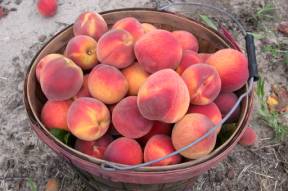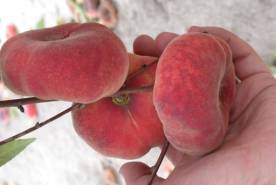Evaluating NC State Bred Peach Varieties for Commercial Use in Western NC-2002 Report
go.ncsu.edu/readext?454073
en Español / em Português
El inglés es el idioma de control de esta página. En la medida en que haya algún conflicto entre la traducción al inglés y la traducción, el inglés prevalece.
Al hacer clic en el enlace de traducción se activa un servicio de traducción gratuito para convertir la página al español. Al igual que con cualquier traducción por Internet, la conversión no es sensible al contexto y puede que no traduzca el texto en su significado original. NC State Extension no garantiza la exactitud del texto traducido. Por favor, tenga en cuenta que algunas aplicaciones y/o servicios pueden no funcionar como se espera cuando se traducen.
Português
Inglês é o idioma de controle desta página. Na medida que haja algum conflito entre o texto original em Inglês e a tradução, o Inglês prevalece.
Ao clicar no link de tradução, um serviço gratuito de tradução será ativado para converter a página para o Português. Como em qualquer tradução pela internet, a conversão não é sensivel ao contexto e pode não ocorrer a tradução para o significado orginal. O serviço de Extensão da Carolina do Norte (NC State Extension) não garante a exatidão do texto traduzido. Por favor, observe que algumas funções ou serviços podem não funcionar como esperado após a tradução.
English
English is the controlling language of this page. To the extent there is any conflict between the English text and the translation, English controls.
Clicking on the translation link activates a free translation service to convert the page to Spanish. As with any Internet translation, the conversion is not context-sensitive and may not translate the text to its original meaning. NC State Extension does not guarantee the accuracy of the translated text. Please note that some applications and/or services may not function as expected when translated.
Collapse ▲This is a 2002 report from a NC Specialty Crops Program Project. It is posted for historical reference purposes.
Reviewed by Jeanine Davis, NC Alternative Crops & Organics Program, Department of Horticultural Science, NC State University on 10/5/2022.
PROJECT LEADER(S): Dr. Michael L. Parker and Dr. Dennis Werner
TYPE OF PROJECT: Research
LOCATION: Fletcher, North Carolina
IMPACT
Successful production of high quality and specialty peaches in western North Carolina represents a profitable opportunity for growers wanting to diversify farm income. New cultivars developed at NC State University have the potential to overcome the region’s typical problems with freeze/frost damage to peaches. These high-chilling cultivars are being tested in addition to cultivars with other characteristics that are desirable to consumers, such as low acidity and unique shape and flesh color.
METHODS
In 2001, 15 cultivars of peaches were planted at the Mountain Horticultural Crops Research Station in Fletcher, NC. These were primarily NC released cultivars of both white and yellow-fleshed varieties. Seven additional selections were planted in 2002 with superior traits such as cold hardiness, white flesh, low acidity, late ripening, or doughnut shape (“peento” type).
RESULTS
There are no results to report at this time regarding the cropping potential of the named cultivars or selections. In 2003, the trees that were planted in 2001 will be allowed to crop. Tree growth and survival has been exceptional and the flower bud set for 2003 looks very promising.
CONCLUSION
No conclusions can be made at this time due to the time required to get peach trees into production. However, we believe that peaches provide a profitable opportunity for small and/or diversified farmers in western NC. There are several workshops and educational programs scheduled for early 2003 in western NC in addition to a potential fruit tour at the Mountain Horticultural Crops Research Station in the summer of 2003.
PHOTOS




